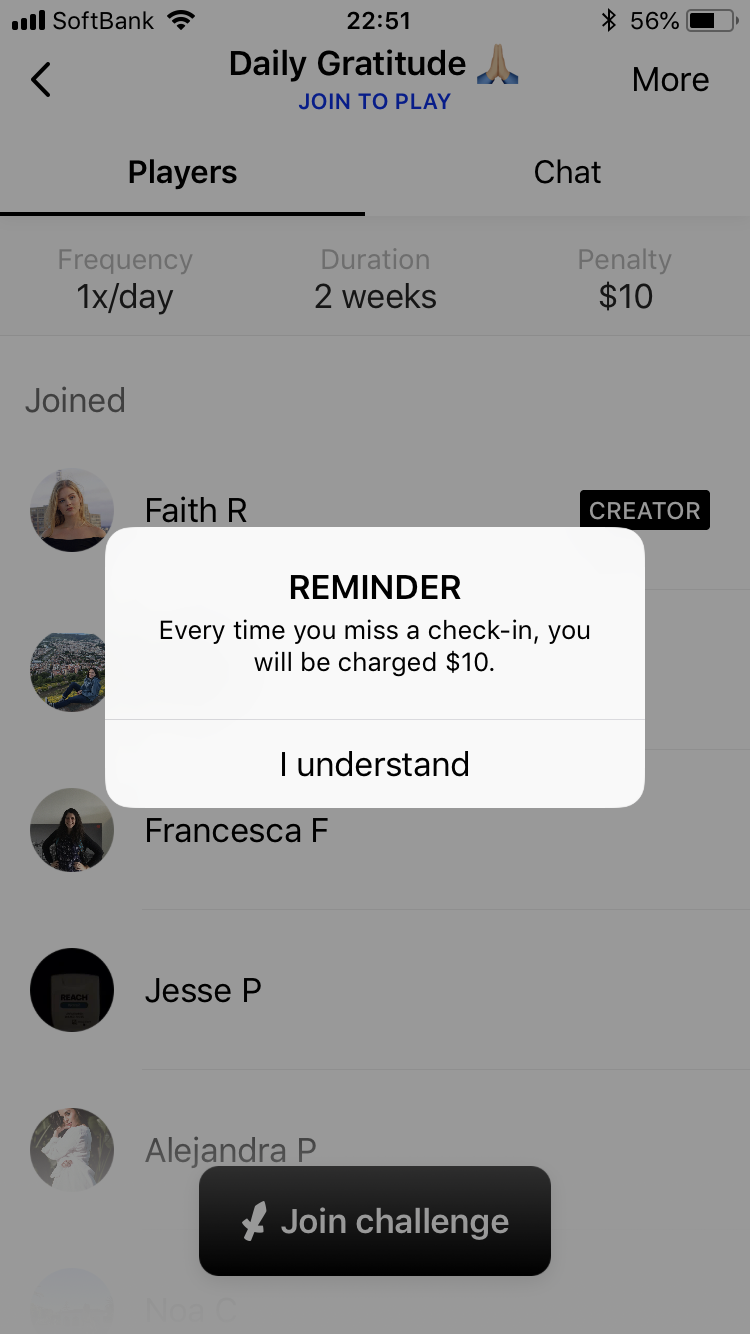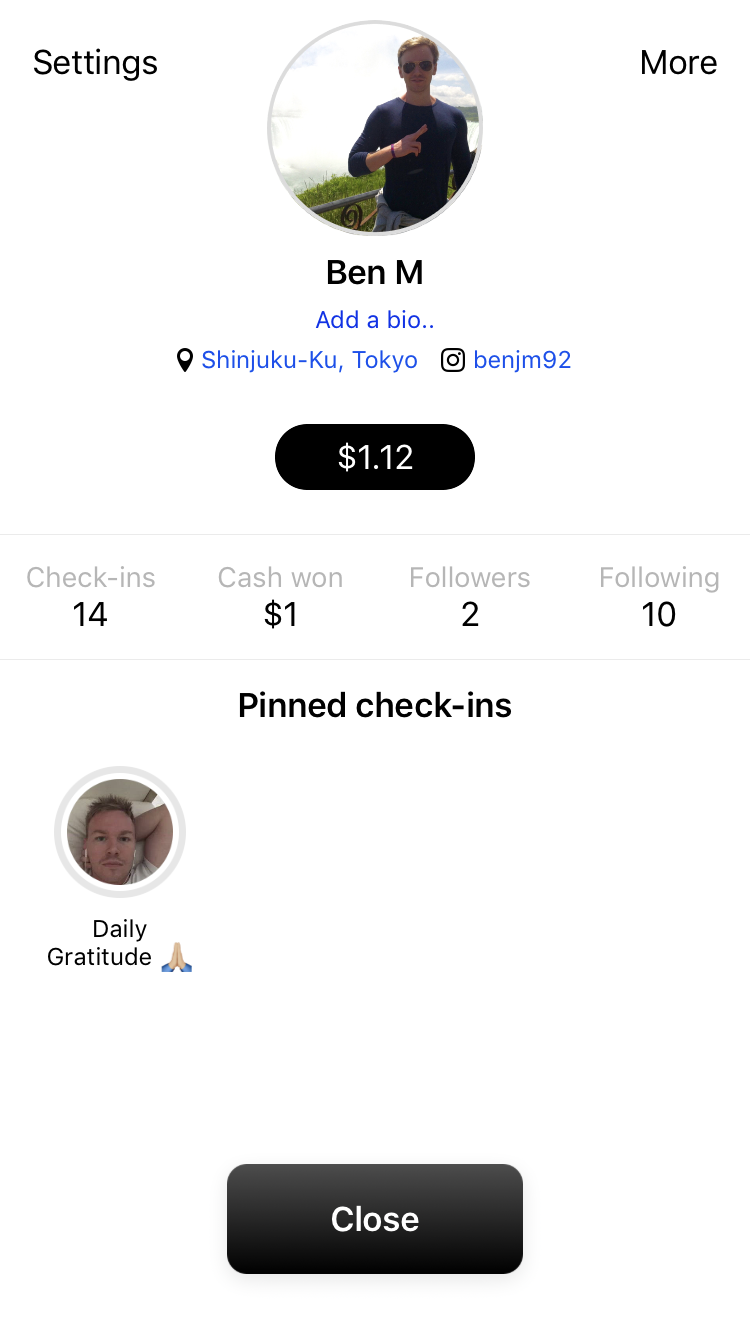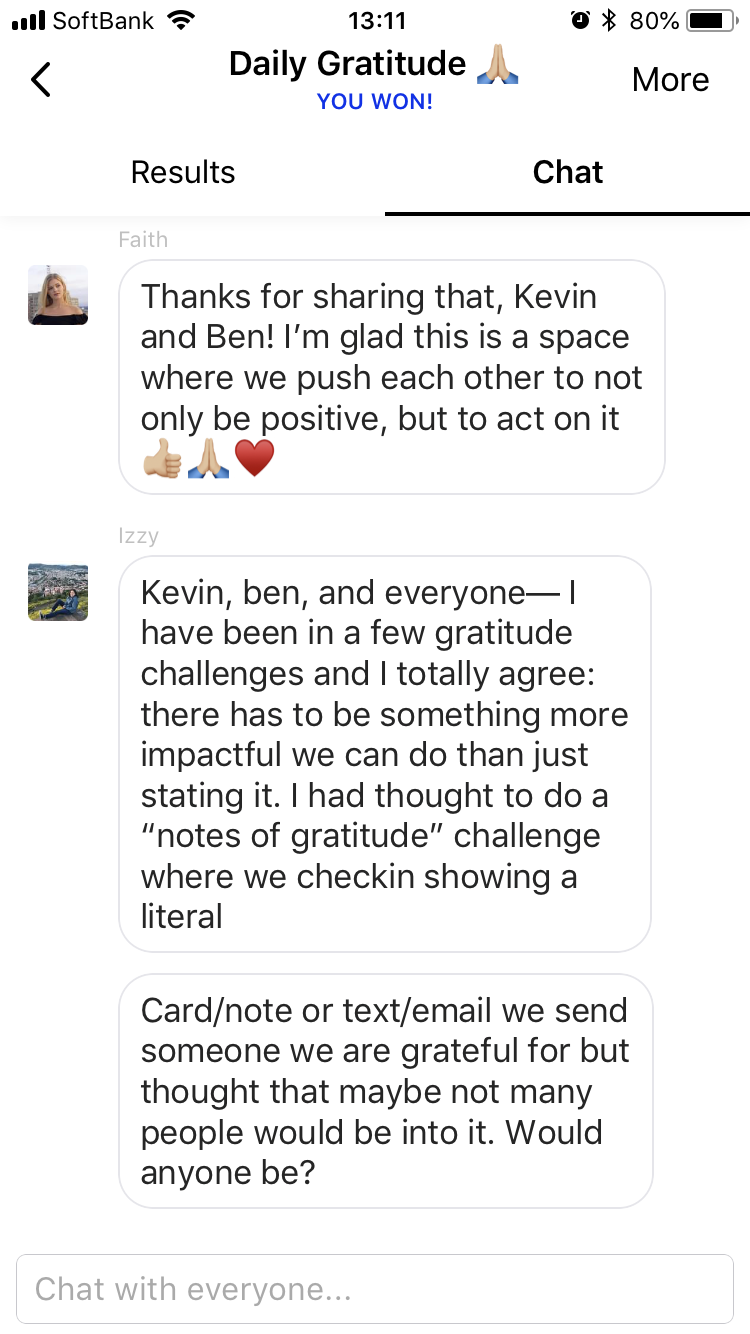Every day for the last 14 days, I stared into the camera on my phone and expressed gratitude.
I’ve done gratitude challenges before, but I always found it hard to stay consistent.
After a few days in a row, I didn’t fuss if I missed a day or two.
Then those missed days would lead swiftly to a complete abandonment of the challenge altogether.
Habits are hard to build.
That’s why gyms are full the first week of January, then practically empty by February.
That’s why most people haven’t read a book since college, let alone a read book a week.
That’s why you stay the same year in, year out, then wonder where the time went.
The reason for the easy slide back into mediocrity?
You have nothing to lose.
Habits are easy to build… IF you have something to lose
Go the gym 3-4x a week and have a sexy healthy body.
Read a chapter a day and become more knowledgeable and interesting.
Meditate 5 minutes first thing in the morning and experience a drastic drop in stress levels.
Aren’t these rewards motivating enough?
According to tons of psychological studies, not really.
There are two other factors that humans respond to WAY better than the thought of a future reward:
- Loss aversion
- Social accountability
We are way more likely to stick to something if not sticking to it results in a penalty in the short term.
Are you more likely to read a chapter of a book if…
- You get $5 for completing it?
- You lose $5 for not completing it?
The correct answer – almost all of the time – is the second one.
We’re also way more likely to stick to something if we know people are watching.
If we’ve made a public pledge to do something, peer pressure is a force strong enough to make sure most people actually DO IT.
I first came across these two principles of habit building when reading Tim Ferriss’ The 4-Hour Chef (great book) six years ago.
But I did nothing with it.
Like most people, I was secretly worried about putting money on the line when building new habits because I believed there was a real possibility that I’d lose a bunch of cash.
I also was worried about making my promises public because if I failed I’d look really stupid.
Enter SPAR, the social habit building app.
I was wondering why there are barely any reviews for SPAR.
This app is freaking awesome.
But, now mulling it over, it’s kinda obvious…
How many people are really using an app that will bill you for not completing a habit each day?
It’s a shame because it really works and everyone I’ve seen using it LOVES it.

In fact…
SPAR is downright addictive and easily one of my favourite apps of all time.
Basically SPAR works like this:
There are a bunch of different public challenges you can join.
Stuff like:
- Be up by 8am
- Workout 4x a week
- Read a chapter a day
- Meditate for 5 minutes
- Write 500 words a day
- Watch an educational video
- Take a 3-minute cold shower
Public challenges are often hosted by people you probably already know.
Ryan Holiday recently hosted a 30-day stoicism challenge.
Jeff Goins recently hosted a write 500 words a day challenge.
You can join one of these public challenges or make your own either by yourself or among your friends or even with your own tribe of people/fan base.
Different challenges have different parameters for success or failure.
The gratitude challenge I recently completed worked like this:

It ran for 14 days.
You had to do a video check-in 1x a day saying what you’re grateful for.
If you didn’t check-in, you lost $10.
Obviously losing $10 stings for most people.
Especially when all you have to do is something as simple as express gratitude.
So the adherence in that group was SUPER HIGH.
But there were a few people who missed check-ins.
This is where a cool little bonus comes in.
Money from people who missed a check-in goes into a pot.
At the end of the challenge, the money in the pot is divided up and given as a prize to those who stayed consistent with their habit every day.
So I won a little cash.
I mean $1.12…

But the pot size in this challenge was tiny.
I’ve seen other challenges where the pot size is hundreds of dollars.
I’ve seen users who have won thousands of dollars.
Obviously you don’t do it for the money but….
How FREAKING AWESOME is that?
You end up with a strong new habit because of the social accountability and loss aversion, and you also win some cash too?
Obviously I was a bit apprehensive about putting my card info in and being told I’d get billed a tenner if I didn’t do a video check-in but…
I’m glad I signed up because…
- It worked.
- It was a ton of fun.
Expressing gratitude lifted my mood each day and lead to me making lifestyle and behaviour changes I wouldn’t have otherwise.
And I really loved the community aspect of SPAR.
 Each challenge has a chat area where you can talk with the other participants.
Each challenge has a chat area where you can talk with the other participants.
I really loved this and it really did add an extra boost of motivation to keep checking in each day.
It was also great watching the check-ins of the other participants.
It really feels like you’re part of something and you have a group of likeminded people all in it together.
SPAR is going to be a staple of my habit building routine from now on.
I love everything about it from the friendly community vibe, to the structure of checking in each day, to the fact that it actually works to build habits way more powerfully than anything else I’ve tried before.
If you’re finding it hard to build a certain habit, I highly recommend it.